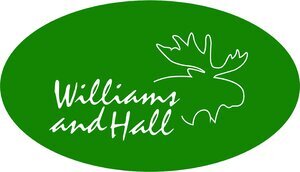Basic BWCA Bushcraft Increases Camping Comfort
How to Increase Your BWCA Camping Comfort and Tread Lightly at the Same Time
In my last couple posts, I have been talking about wilderness trip planning and gear planning. This month , while sticking to the same theme of enjoying wilderness travel more fully, let’s turn our attention to what the military would call a force multiplier. That is an enhancement or improvement one can add to the effort that will produce a disproportionately better result. In this application, what can we do to have a better experience in the wilderness, without a lot of added expense or effort. The answer is served up in one word, BWCA Bushcraft!
What is BWCA Bushcraft
Bushcraft is a term that encompasses a number of skill sets that enhance your wilderness experience while learning to tread lightly and wisely at the same time. As I grew up, I was one of those kids that read outdoor books between bites of frosted flakes and peanut butter toast at breakfast. Yea, I know! This resulted in an insatiable desire to get into the woods whenever I could.
Some of the early books I can remember, were Horace Kephart’s Camping and Woodcraft, A Handbook for Vacation Campers and Travelers (1906) and Ernest Thompson Seton’s The Book of Woodcraft (1921). These books and others started me on a lifelong pursuit of outdoor endeavors. Their collective genius was that they taught you that your level of enjoyment of a wilderness camping experience was to a great extent dependent on what you had between your ears and not on your back.
The Basic BWCA Bushcraft Skill Sets
These skill sets of BWCA Bushcraft include, but are in no way limited to, firecraft (the art of starting, controlling, and maintaining a fire), ropecraft (using the combination of knots, lashings, cords and ropes to construct, fasten, and improve items around your camp), knives (the most important camp tool), hunting and fishing, shelter construction, tracking (what’s the story?), cooking.
Let me start with an example that we see all the time. At a sport show, someone walks up to one of us and proclaims, that they just do not do camping. It is obvious that this statement was born out of a bad experience. If we could eliminate those bad experiences, I am sure we would have a lot more campers in the world. So if we knew better how to handle hard ground, starting a fire after a rain storm, bugs, wind, cold, etc. we might be more likely to venture forth, right?
Some Quarantine Advice
Here is the deal, my friends. You can waltz into your local purveyor of fine outdoor gear and deposit a vast amount of treasure. Then waltz on back out with a load of the newest, shiniest, most highly reviewed, camping gear and still not be able to solve the basic concerns listed above. My recommendation, while we are quarantining ourselves, dig up one or two of these old guys’ books and check them out.
It is amazing to me how many times I have stood on their shoulders to help improve my experience. In one of the tracking books I read, it taught of how animals are often creatures of habit, they will repeat themselves. So one day when paddling into Kawnippi Lake in the Quetico with a group of kids, we saw in the grass and reeds several watering spots where moose were coming down to feed and drink in the lake. So, we staked out the spot and sure enough we were rewarded with 30 minutes of incredible moose grazing time.
Also, by taking a small hatchet with us, we are able to split small branches and have a ready supply of bone-dry kindling after a wet spell. While many an average canoeist eats while in the woods, very little extra planning will allow you to dine while in the woods. Foraging skills will help you know when and where to put those wild blueberries on your table. And so forth….
Frosted Flakes and Bushcraft
Of course, many things have changed from the early outdoor travelers. We no longer use live trees to frame up our tents. And, we no longer dig drainage trenches around the tents. We no longer burn garbage or bury cans and bottles. Yes, in these areas we have learned our lessons and progressed accordingly. However, I have yet to go on a camping trip and not find myself remembering frosted flakes and the bushcraft lessons of my youth. While books are great. But I encourage you to tap into the multitude of online sources that can greatly enhance your onboard wilderness skills. The time you put in prior to your trip will pay great dividends. These skills will allow you to greatly improve your outdoor experience and are well worth your time and effort.
Blayne
Paddle On. Be Free.
For more information on BWCA Family Canoe Trips, click here, or call us at 218-365-5837



